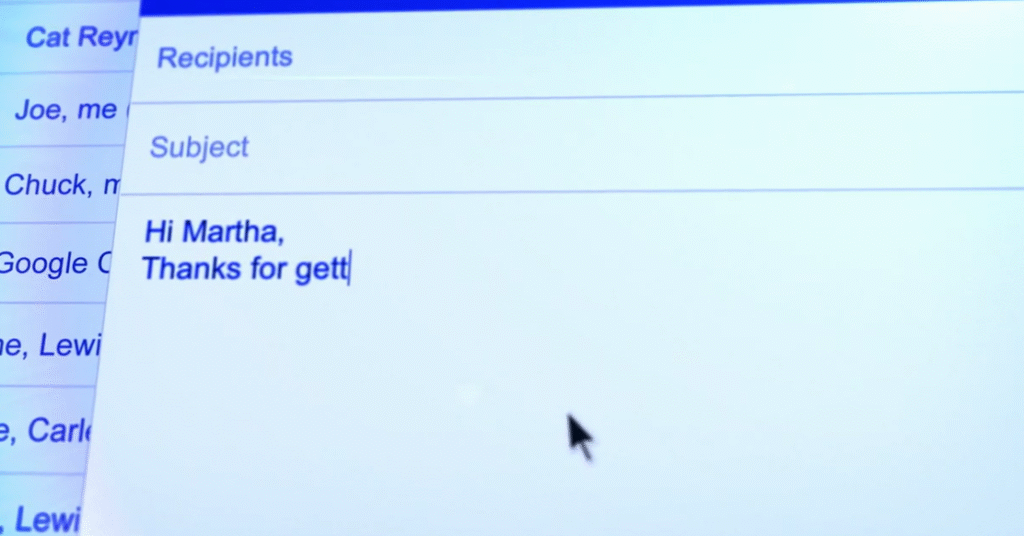The Gmail class action lawsuit has become one of the most significant privacy disputes in contemporary technology, underscoring the growing apprehension regarding the management, storage, and monetization of personal data. A federal jury in California recently ruled that Google had to pay $425 million in damages for continuing to track user activity even after account holders specifically turned off data monitoring features. Transparency, consent, and the future of digital ethics have all been hot topics of discussion since the ruling.
Google was accused by the plaintiffs, Julian Santiago and Anibal Rodriguez, of illegally collecting user data related to Gmail and app usage from 2016 to 2024. According to reports, data was still gathered and examined even after users turned off their “Web and App Activity” settings, which improved Google’s advertising algorithms. The case, which lawyers referred to as “a modern surveillance scandal,” demonstrated how closely digital habits can be tracked beneath the surface of daily convenience.
Through the utilization of technical know-how and a thorough analysis of Google’s internal records, the plaintiffs’ legal team demonstrated that the company’s privacy architecture was incredibly intricate—at times, even contradictory. Despite Google’s defense that all information was encrypted and anonymized, the jury found that collecting such data without express consent was an invasion of privacy. The position, which implied that digital rights should have the same legal protection as physical ones, was remarkably firm.
Gmail Class Action Lawsuit
| Detail | Information |
|---|---|
| Defendant | Google LLC (Parent: Alphabet Inc.) |
| Lawsuit Focus | Data tracking and privacy violations involving Gmail and Google apps |
| Plaintiffs | Julian Santiago, Anibal Rodriguez, et al. |
| Court | U.S. District Court for the Northern District of California |
| Verdict | $425 million in damages (jury decision, 2025) |
| Affected Users | Estimated 98 million U.S. Google account holders |
| Allegations | Unlawful tracking of app and email activity despite privacy settings |
| Lead Attorneys | David Boies (Boies Schiller Flexner LLP), Bill Carmody (Susman Godfrey LLP), John A. Yanchunis (Morgan & Morgan) |
| Current Status | Google plans to appeal the ruling |
| Reference Link | https://www.topclassactions.com |

This decision is especially important because of its scope. Almost 100 million Americans may be impacted, many of whom use Gmail for financial, medical, and business records in addition to personal correspondence. Data, which was once thought of as an invisible commodity, is now acknowledged as a type of personal property that is worth protecting, according to the ruling, which has resonance in professional sectors that mainly rely on digital communication.
As expected, Google’s response has been defensive. According to the company, it complied with policy and that gathering user data was necessary to enhance security and performance. This explanation, though, seems remarkably similar to past corporate defenses in other tech scandals, like Facebook’s Cambridge Analytica controversy, which also conflates intrusion and innovation. According to a digital policy expert, “This verdict suggests that era is ending—the industry has long operated on implied consent.”
The way that ethics, technology, and law all come together in this case is what makes it so novel. In a time when apps, AI assistants, and email services are all interconnected, it compels businesses and regulators to consider data usage. The lawsuit concerns the digital infrastructure that underpins modern life, not just Gmail. The notion that merely clicking “I agree” once can give businesses unrestricted access to a person’s online activity is contested.
The lawsuit’s legal team consists of some of the most experienced privacy law litigators. David Boies, well-known for his high-profile cases involving the U.S. government and Microsoft, was instrumental in presenting Google’s data practices as an ethical transgression rather than a technical error. Because he humanized the problem by turning impersonal data points into accounts of users who trusted their privacy settings only to discover that their data was still being collected, his strategy was especially compelling.
Outside of the courtroom, this case has sparked discussions about digital self-awareness in a wider cultural context. Gmail, which was once thought to be a sign of effective communication, is currently being reexamined from a skeptical angle. Concerns regarding the extent to which private or professional correspondence may have been examined for promotional purposes have been raised by public figures, journalists, and even business executives. With Gmail being used by CEOs, celebrities, and regular people alike, the revelation is especially unsettling.
The effects on society could be profound. The Gmail case is already being cited by lawmakers as proof that a federal data protection law is desperately needed. Numerous experts think it might hasten the creation of an American version of the General Data Protection Regulation (GDPR), which is the European model. A law like this would be especially helpful in providing users with explicit rights to manage their digital footprints, which are currently dispersed across state lines.
For consumers, this decision offers opportunity as well as validation. It reaffirms that invasions of privacy are real betrayals of trust rather than intangible damages. Due to the expectation that compensation procedures will follow pending appeals, eligible users are urged to visit the official settlement websites. Even the most powerful corporations are held accountable to their users, which is a huge symbolic victory, even though the monetary payments per person may be small.
